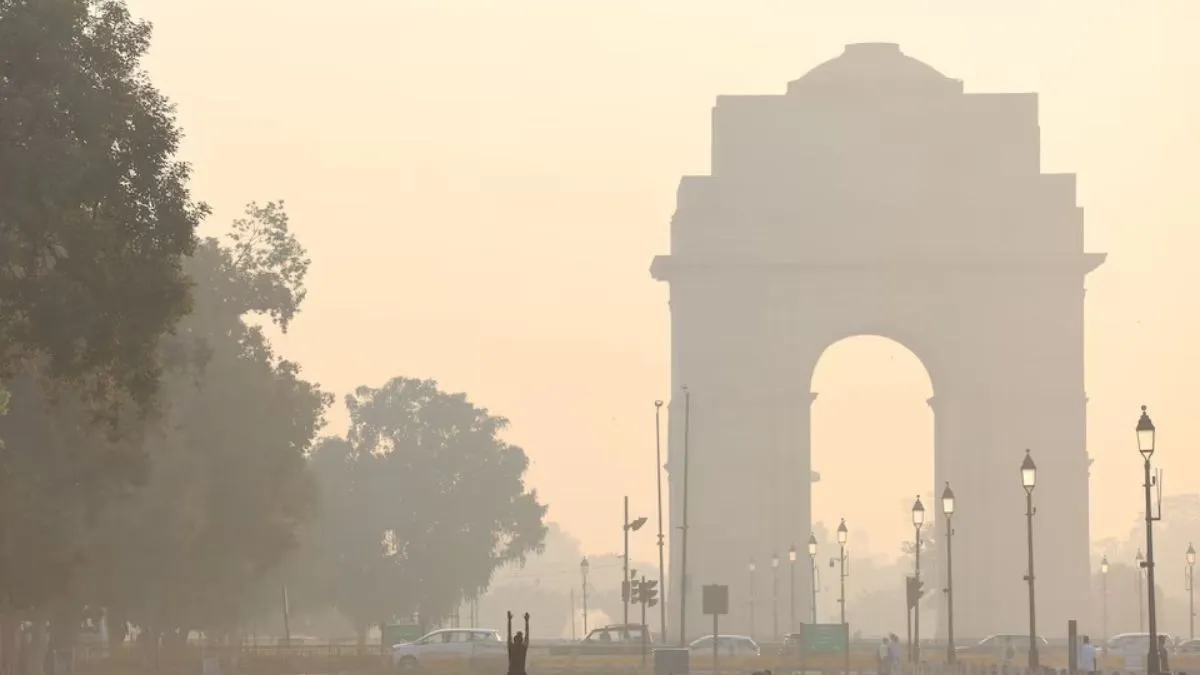- By Shibra Arshad
- Tue, 21 Oct 2025 11:59 PM (IST)
- Source:JND
Delhi AQI After Diwali: Delhi's air quality plummeted to hazardous levels following Diwali, making it the world's most polluted city. Despite claims of using 'green crackers,' the national capital's Air Quality Index (AQI) soared, with IQAir ranking it on top globally.
The air quality deteriorated after incessant burning of firecrackers till past midnight on Diwali. Three Indian cities and two Pakistani cities were featured among the top five most polluted cities after the Diwali celebration. Kolkata, Karachi, Lahore, and Mumbai followed Delhi on the list.
ALSO READ: Gold Silver Price: Precious Metals Witness Biggest Dip In Four Years; Why Did The Market Crash?
Delhi Breaths Most Polluted Air In Five Years
Diwali celebration affected Delhi's air severely, with the Central Pollution Control Board (CPCB) reporting the highest pollution levels in the past four years. However, strong winds reportedly helped prevent a full-blown emergency, dispersing the toxic air.
The situation is concerning, particularly in the wake of the Supreme Court's strict orders and governments' claims of promoting 'green crackers' to curb pollution. But the green crackers also contributed significantly to the pollution.
This is the situation despite the National Clean Air Programme (NCAP) being implemented in 134 major cities, including Delhi, with huge funding given to combat air pollution.
Delhi's AQI For The Past Four years
dir="ltr" align="left">
Year | AQI A Day Before Diwali | AQI On Diwali | AQI A Day After Diwali |
2022 | 259 | 312 | 302 |
2023 | 220 | 218 | 358 |
2024 | 328 | 339 | 316 |
2025 | 256 | 345 | 352 |
Former NITI Aayog Chairman Questions Delhi's Inability
Former NITI Aayog Vice Chairman Amitabh Kant questions Delhi's inability to curb air pollution, citing examples of Los Angeles, Beijing, and London. He emphasises Delhi's poor air quality, with 36 out of 38 monitoring centres in the red zone and AQI above 400 in key areas.
Kant stresses the need for a unified action plan, including stopping crop burning, modernising thermal power plants, and transitioning to electric transport by 2030.
ALSO READ: 'Do Not Challenge Us': Shiv Sena After Congress Announces To Contest Mumbai Civic Polls Alone
Kant suggests drastic measures are required to save Delhi from this health and environmental disaster. He advocates for strict control of construction dust, complete waste segregation, and redesigning Delhi to be more green and pedestrian-friendly. He added that Continuous effort is necessary to overcome the pollution problem.

